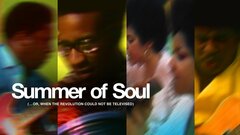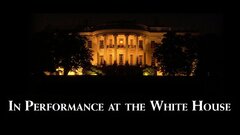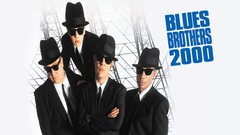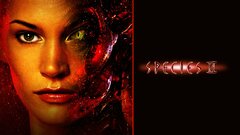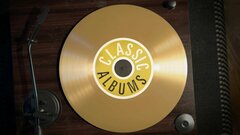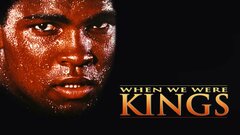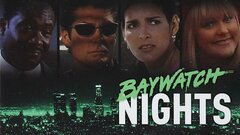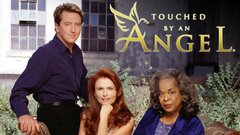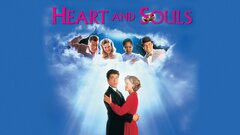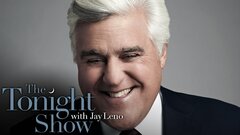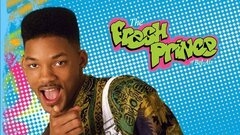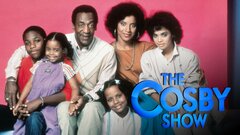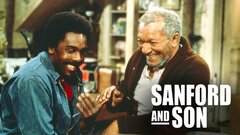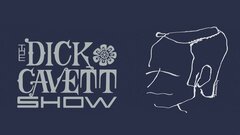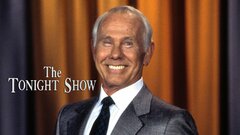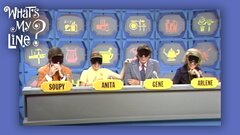Arguably the most popular blues recording artist of the 20th century, as well as one of the most significant in the development of the electric guitar, B.B. King was a singer and performer whose voluminous and celebrated body of work helped bring the blues to mainstream audiences. King's sound - at once mournful and ecstatic with its trademark string bending and left-hand vibrato - bridged the gap between the rough-hewn country blues of his home in the Deep South, and the raucous electrified blues of Chicago and Detroit. What King brought to the music was jazz phrasing and soulful, gospel-driving singing that found favor with audiences who normally would not truck with the blues; in turn, he became an international favorite and Grammy winner 15 times over.
Up until his death on May 14, 2015, King continued recording, performing and bringing his inimitable presence and music to listeners around the world, ensuring his well-earned status as King of the Blues.
Born Riley B. King on a plantation in Itta Bena, MS on Sept. 16, 1925, he was raised by his mother and grandmother, and spent his early years in the backbreaking trade of sharecropping. He gained his first exposure to live performing at the age of 12 via a gospel group, which inspired him to purchase his first guitar. Influenced heavily by the stinging guitar licks of jump blues player T. Bone Walker and the nimble, precise work of jazzmen Charlie Christian and Django Reinhardt, he built up his chops one street corner at a time, and in 1946, headed for Memphis, TN.
At the time, the city was as important a center for Southern music as it would be for decades to come and held further significance for King as the home of his cousin, established blues musician Bukka White. King soaked up White's wealth of knowledge, but found himself not quite up to snuff in terms of making a living as a musician. He returned briefly to Mississippi before traveling back to Memphis. This time, King was ready to make his way in the business.
His first break came in 1948 when he gained a showcase on blues harpist and singer Sonny Boy Williamson's radio program on KWEM. This led to live gigs in Memphis, and later a 10-minute spot as disc jockey and singer on the all-black-staffed- and owned- WDIA. His program, "King's Spot," quickly gained an audience, and was expanded into a longer show, "The Sepia Swing Club." Initially billed on-air as the "Peptikon Boy" (after an alcohol-laden home remedy), King's radio handle became "Beale Street Blues Boy," which was eventually shortened to Blues Boy King and eventually, B.B. King.
King began recording music in 1949, first for Nashville's Bullet Records, where his producer was the legendary Sam Phillips, founder of Sun Records. He later signed to a contract with the Los Angeles-based RPM Records. His signature style - a precise, economical, and vocal-like delivery driven by solos, not chords (which, by King's own admission, were not his forte) that drew influence from his blues and jazz favorites, as well as swing and pop - was front and center on a string of singles which preceded his first big hit, "Three O'Clock Blues." The tune topped the R&B charts in 1951 and established King as a star on the blues circuit.
He formed a band, the B.B. King Review, and began the tireless cross-country tours that formed the backbone of his career for the next half-century. While playing a dance club date in Twist, AR in the early 1950s, some patrons broke into a brawl that caused the location to catch fire. After fleeing the club, King realized that his cherished Gibson guitar was still inside, and risked his life to retrieve it from the flames. When he later discovered that the fight had been over a woman named Lucille, he adopted the name for all of his subsequent Gibsons as a reminder to keep out of predicaments like the one that had led to the fire. In 1982, Gibson guitars released an official Lucille semi-hollow body model, which reproduced the sleek cherry wood and ebony finish of his personal versions.
The 1950s and '60s saw King work a tireless schedule of touring throughout the United States; in 1956 alone, he booked and played a record-breaking 342 dates in one year. King's recorded output was equally astonishing, with countless Top 10 hits on the R&B charts from 1956 to 1964, including such signature tunes as "You Upset Me Baby" (No. 1), "Every Day I Have the Blues" (No. 8), "Sweet Little Angel" (No. 6), "Sweet Sixteen Part 1" (No. 2) and "Rock Me Baby," which broke into the Top 40 pop charts in 1964.
A legion of up-and-coming and future guitar players studied his records with scholastic fervor and adopted his style for their own work, including Eric Clapton, Jeff Beck, George Harrison, Stevie Ray and Jimmie Vaughn. A 1964 album, Live at the Regal, solidified his status as a concert workhorse with limitless showmanship and unquestionable blues credentials.
King's crossover into mainstream popularity began in the late 1960s, when he was invited by promoter Bill Graham to play for predominately white counterculture crowds at the Fillmore West, which was ground zero for major rock and pop acts of the period. King was introduced to numerous groups and performers who had cut their teeth on his early records, including the Rolling Stones, who invited him to open for 18 shows on their 1969 North American tour. King made further inroads into the mainstream via his electrifying performance at the 1968 Newport Folk Festival.
Two years later, King enjoyed his biggest hit with "The Thrill is Gone," a soulful R&B number that reached No. 3 on the R&B charts and No. 15 on the pop charts, as well as a Grammy for Best Male R&B Vocals. Now firmly ensconced as a mainstream act, King soon found himself atop a string of Top 20 and Top 40 R&B hits throughout the 1970s, including the funky "Chains and Things" (No. 6), "I Like to Live the Love" (No. 6) and the crowd-pleasing "Let the Good Times Roll" (No. 20).
The latter was a concert favorite, most notably on a live album with sandpaper-voiced blues crooner Bobby "Blue" Bland, a former cohort from Memphis who had achieved his own level of mainstream success. The pair released two raucous and popular live albums in 1974 and 1976.
By the 1980s, King was firmly established as the leading blues player in the world. Other players had recorded more traditional fare, or lived harder lives, but King's combination of elegant playing, jubilant live performances, and peerless grasp of many musical mediums made him a top concert draw for nearly 300 nights a year across the globe. His recording output slowed considerably during the decade, and some were more successful than others - 1982's "Love Me Tender" was a failed attempt to bridge the gap between the slick Nashville country sound and King's blues and R&B - but his status at the top of the blues game remained unchallenged.
And, as befitting a figure of his status, King began reaping his share of honors, including induction into the Blues and Rock and Roll Halls of Fame in 1984 and 1987, followed by a Lifetime Achievement Grammy in 1987, and a wealth of honorary doctorates from colleges and universities across the South. King also collected tributes from the National Medal of Arts (1990), the National Heritage Fellowship from the National Endowment for the Arts (1991) and a Kennedy Center Honor in 1991.
King's career enjoyed a massive upswing in 1988 when he recorded a spirited duet with U2 on "When Loves Come to Town," arguably one of the highlights of their blockbuster album Rattle and Hum. A Top 5 single on the U.S. rock charts, it signaled a revival of interest in King and his music, and from that point onward, the veteran bluesman was virtually everywhere - on music video channels with the U2 single, in concert, and on television, both as himself and in occasional acting roles on series like "The Cosby Show" (NBC, 1984-1992) and "The Fresh Prince of Bel-Air" (NBC, 1990-96).
King also fronted an all-star band that included Dr. John, Eric Clapton, Koko Taylor and Bo Diddley in the otherwise lamentable "Blues Brothers 2000" feature in 1998. King's recording of "The Thrill is Gone" was inducted into the Grammy Hall of Fame that same year.
King became a franchise in the early 1990s by launching B.B. King's Blues Club on his old stomping ground of Beale Street in Memphis in 1991; four more followed between 1994 and 2002 in such far-flung places as Los Angeles and the Foxwoods Casino in Connecticut. His renewed presence on the blues scene signaled a return to recording in that decade as well; Blues Summit (1993) saw him partner with other legends of the genre like John Lee Hooker and Etta James to lend their experience to an album of standards, while Let the Good Times Roll: The Music of Louis Jordan (1999) was a tribute to the jubilant blues saxophonist.
King also released On the Road with B.B. King: An Interactive Biography on CD-ROM in 1996, and published his autobiography, Blues All Around Me, that same year.
King celebrated the new millennium with Riding with the King, an album with longtime acolyte and friend Eric Clapton, in 2000. Its double platinum sales and Grammy win for Best Traditional Blues renewed King's peerless status among blues players, and he rewarded his fans with follow-ups including B.B. King and Friends: 80 (2005), which celebrated his eighth decade with a series of all-star collaborations, including Elton John, Sheryl Crow, Van Morrison and John Mayer.
The following year, King began what he described at the time as his farewell world tour. The pronouncement proved to be somewhat premature, as King was back on the road with a schedule that would prove wearying for performers half his age. He found himself on the receiving end of another spate of tributes to his longevity and status, including an official marker for the Mississippi Blues Trail at the site of his first radio broadcast in Greenwood, and the launch of the B.B. King Museum in Indianola, a town very close to his birthplace.
In 2008, King scored his own radio station, B.B. King's Bluesville, on the Sirius XM satellite network. That same year, he netted his 15th Grammy Award for his 24th album, the traditionally minded One Kind Favor. In 2009, TIME magazine placed him third on their list of Top Ten greatest guitarists of all time; he earned a similar rank six years earlier on Rolling Stone magazine's 100 greatest guitarists of all time.
King's recording and performing slowed in the final years of his life, due to complications from diabetes, but the great bluesman never retired. B.B. King died on May 14, 2015, in his sleep, at his home in Las Vegas, Nevada.

